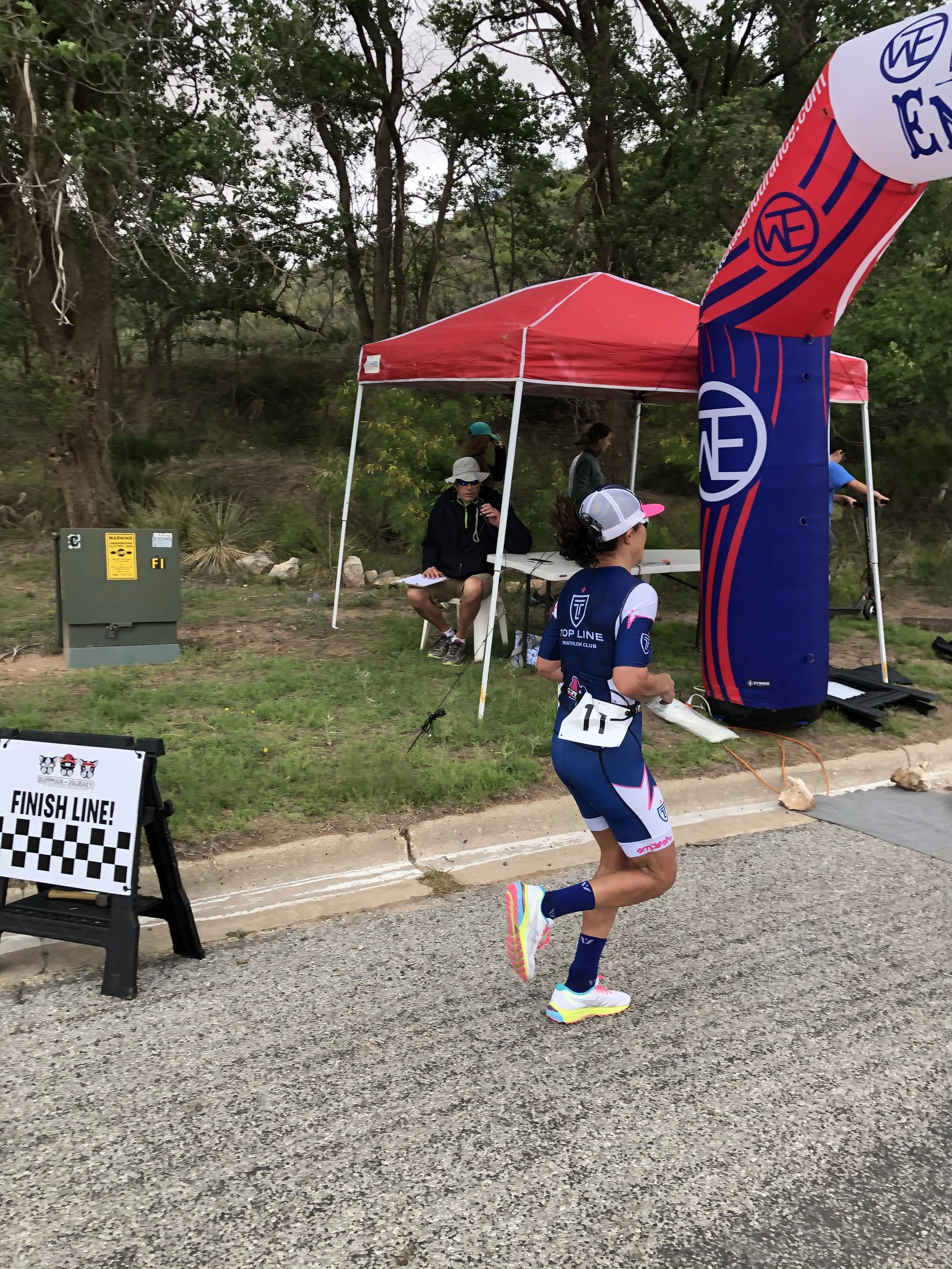How to Race Well -> Have a Task Focus
The 2021 race season is well underway and we couldn't be more excited and grateful to be racing! With the renewed enthusiasm and appreciation of our sport, hopefully you've had a chance to revisit your goals and what you want to get out of triathlon. One of the things that draws people to this sport (I believe) is the limitless opportunities for growth; both athletically and personally. This sport has various formats, distances, locations, and opportunities to test yourself against a variety of challenges. When you complete a triathlon, you don't "just" complete the distance, you also handle a slew of new challenges and make adjustments on the fly during a race.
Speaking of goals in triathlon, have you considered how your race goals might affect your performance? One may think, "any goal is a good goal". But not all goals are created equal and not all processes to get to those goals are equally beneficial. On a practical level, many of us enter races thinking about the podium spots, championship slots, or race times that are on the line. These are outcome goals. Outcome goals are not inherently bad. Actually, they can be super effective in helping to get you out of bed for a cold pool swim at 4 AM or push one more hard rep on the bike. Outcome goals drive us in a very visceral way when we think about our sport and what we want to achieve in a broad sense. Outcome goals start becoming an issue for us when we make them into expectations. Here's how:
Outcome Goal: I would love to qualify for Kona in the next 5 years.
Expectation: I must qualify for Kona in my next race.
The outcome goal leaves the door open for a process to unfold taking you from your current fitness to a level that would make a KQ possible.
The expectation places success on a narrow target that is very easy to miss and hard to hit.
Outcome goals are great when used as a long term tool for planning. They are not useful on a practical, day-to-day level when you are training and racing. Day-to-day execution requires process goals that have a strong task focus. Here's how this works:
Expectation: I must ride 20 mph on this bike course.
Process Goal: I will ride a progressive effort reaching my maximum sustainable output by the last 1/3 of the bike course and holding steady.
The expectation gives you a very narrow window for success and places in you in a "do or die" situation, where not reaching that specific goal will mean failure. The process goal gives you an actionable road map for how to race to your potential. If you have trained to the best of your ability, your process goal(s) will help you get the most out of yourself on race day. One of my favorite coaches, Gordo Byrn, would call this a "Task Focus". He refers to a series of actionable, mostly controllable tasks that an athlete can take care of throughout the race. These include effort, pacing, nutrition, and mindset. In Going Long Friel and Byrn discuss focus as a critical success factor. A very instructive quote is
"Early in the day, superior performance results from focusing on holding oneself back. As the day progresses, this focus should shift to process management and maintaining an even effort." (pg. 30)
Consider what processes you need to execute both in training and in racing to get to your goals. These processes are usually based on your effort, your management of nutrition, and your mindset. Maintaining a strong task focus helps keep you on track when you become distracted. A classic example is seeing the clock when you come out of the swim and thinking "wow, I was slower than expected, I need to ride really hard to make up the lost time". That time-based outcome expectation is now leading you to make a change to your effort that is likely to result in some (or a lot of) walking on the run... that loses you even more time.
A great place to start with your task focus is by building a personalized race plan. There you can include the process goals you'll focus on during the race which will put you in the best position to be successful. I recommend using 2-4 process goals for a race - keep them simple and actionable - and you'll experience what it's like to race with a calm, clear head and enjoyment for the challenge!

